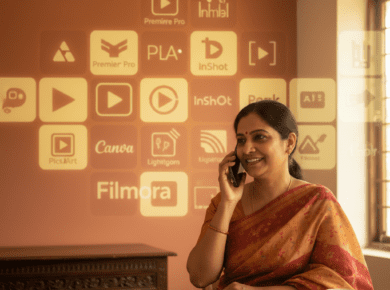Oral presentations delivered to a group of students by a teacher or subject-matter specialist are known as lectures. They are frequently used when the goal is to impart a lot of knowledge to a big group of students and are the normal information distribution method in academic settings.
Presentations are visual aids that summarize facts or information for simple and clear understanding, typically using illustrations and flowchart graphics. Most commonly made on a Powerpoint Presentation application. These presentations can be referred to as lecture presentation used in lectures. A good lecture presentation can raise interest level, helps in enhancing understanding, and increase retention.
Some points to remember while making a presentation are
It’s about the students
The main goal of a presentation is to help the students learn. Therefore, before starting the PowerPoint application, mentally prepare your presentation, and utilize slides for material that is best conveyed graphically. Additionally, ensure the material is prepared properly, that it is simple for students to understand, and is delivered in a way that will help them recall it after hearing it once.
Reduce text
Less is more. For learning and memory retention, narration is superior to written words. Your main goal is to be clear, not exhaustive. Mostly, this implies writing your bullet points in short phrases rather than complete sentences. To make the presentation’s content revision simpler, it will be beneficial to make the presentation in the form of lecture notes that may be shared with the students afterward.
Since most students desire to study less, using short sentences to make studying simpler would allow them to absorb all the essential material while giving the impression that they are studying less.
Reduce distractions
Simple is preferable to dazzling.
Choose basic, unobtrusive backgrounds; simple, easy-to-read typefaces (small fonts irritate viewers); and simple, fluid transitions. Leave out any pointless graphics, animations, or noises. Although a presentation with more creativity could be appealing, it will keep the students from paying attention to the lecture. The images or animations, which are not essential, make it simple to find it interesting and become sidetracked.
Even though the students must pay attention to the lecture, if they only watch the presentation for enjoyment, the presentation won’t be able to accomplish its main objective, i.e., to educate the students.
Plan effectively
An excellent image speaks a thousand words, but a poor one requires explanation. Pick images, charts, and videos that amply illustrate the argument you’re trying to make. Although a presentation with more creativity could be appealing, it will keep the students from paying attention to the lecture.

The images or animations, which are not essential, make it simple to find it interesting and become sidetracked. Even while the students must pay attention, if they only watch the presentation for enjoyment, the presentation won’t be able to accomplish its main objective.
Engage the students in conversation
Don’t overlook them or repeat the slides. Lecturers who only read their slides are said to bother students. Instead, print out a copy of your bulleted lists and talk about the key topics while facing the audience (or position the classroom computer so you can look at the monitor screen while facing the audience).
The students can be kept engaged by actively having conversations with them by asking questions, requesting their opinions on the subject, or even checking on their comprehension of the recent slide. To keep the students’ attention, it is important to include adequate examples and avoid reading repeated material that has already been addressed in the presentation.
Get the Proper Gear
It’s also vital to consider the equipment utilized to deliver the lesson. Suppose the equipment is not operating well or the presentation is not completely visible to all students. In that case, the continuity and flow of the lecture may be disrupted, which will lead to a failure of the lecture presentation.
Equipment like a typical computer system or laptop with an internet connection, external speakers, and a CD/DVD drive, with the computer output shown through a digital projector, are used for delivering a presentation
Reserve time for remarks
Allow time for improvising, queries, and the occasional detour. Students may become confused if they are forced to study all the time without having enough time to fully understand the lesson. It is crucial that students stay alert and not bored during a lecture since uninterested pupils seldom pay attention to what is being spoken.
Teachers typically utilize various techniques to keep their students’ attention while still giving them enough time to process the presented information, such as occasional examples, brainteasers, and sharing personal experiences. The mid-presentation refreshment break and the opportunity for questions or feedback at the conclusion are crucial.
Teachers must also have proper body language and eye contact to keep students’ attention on them and the lecture.
If you are passionate about teaching and wish to expand your online coaching business then Classplus is here to help. At Classplus, we give instructors cutting-edge, innovative tools to deliver lectures to students. This helps teachers remain calm and not feel overburdened while assisting them with any other concerns they might have regarding their teaching profession. Get your own app and reach out to larger number of students. To know more talk to our experts now!



